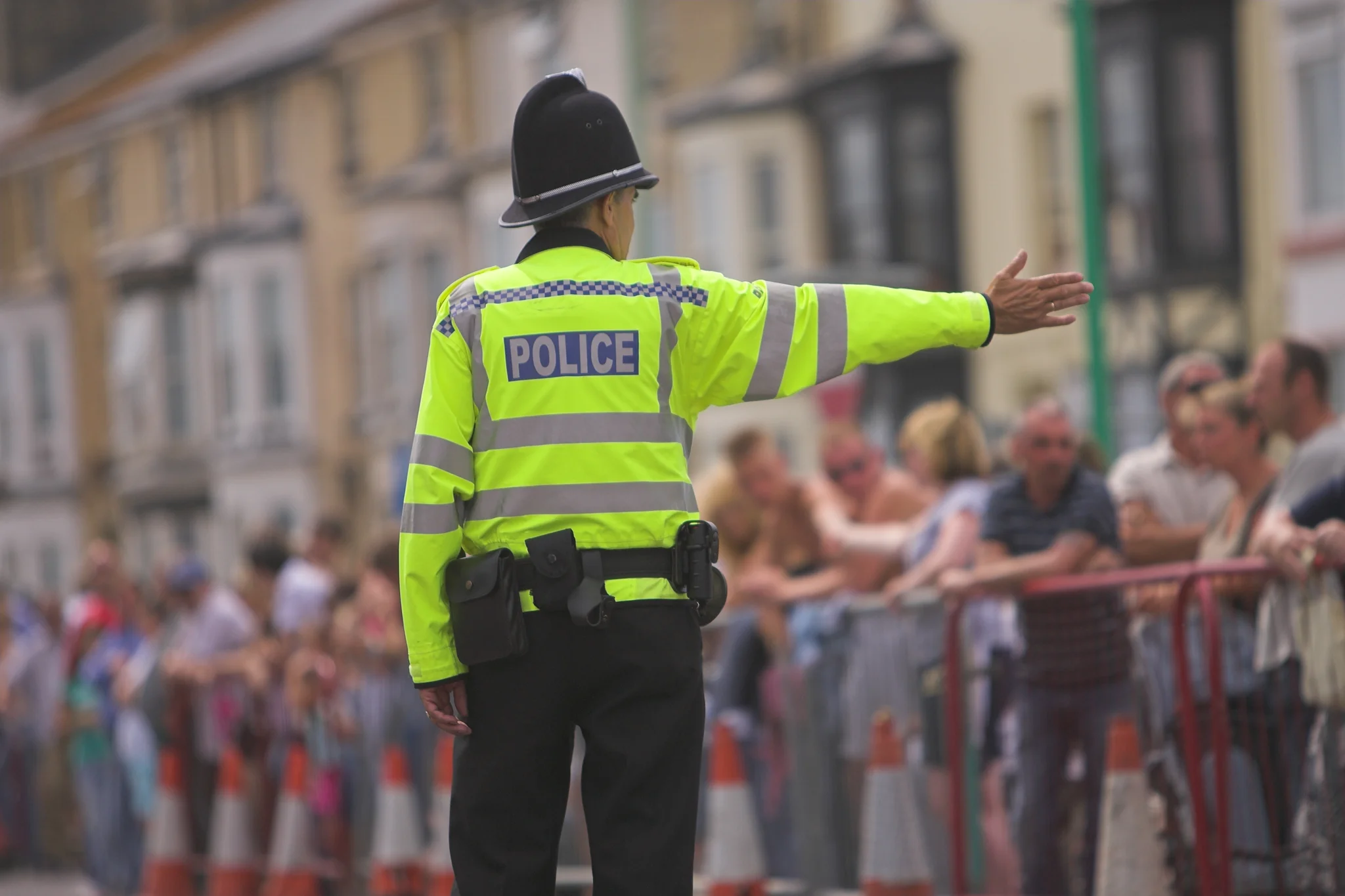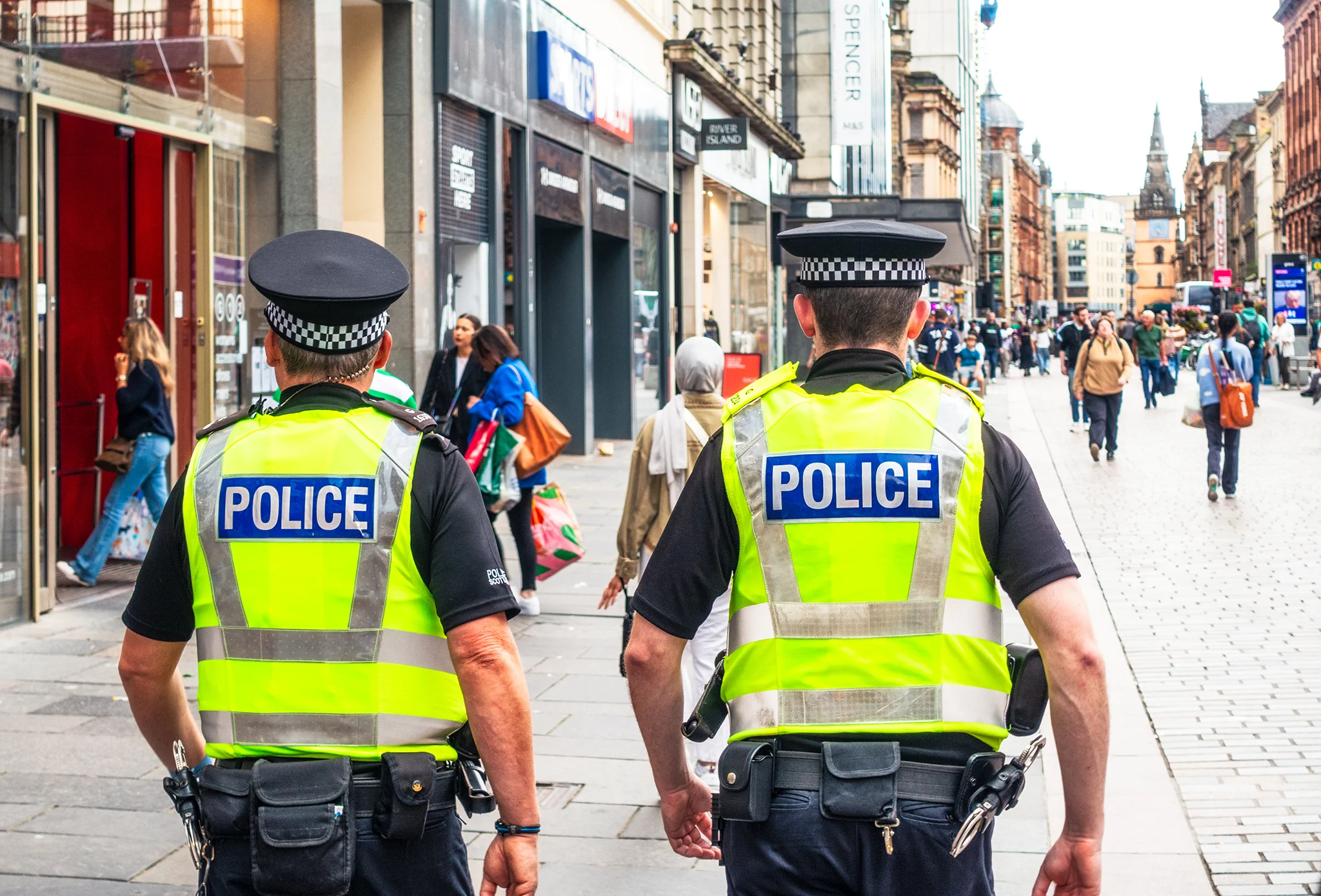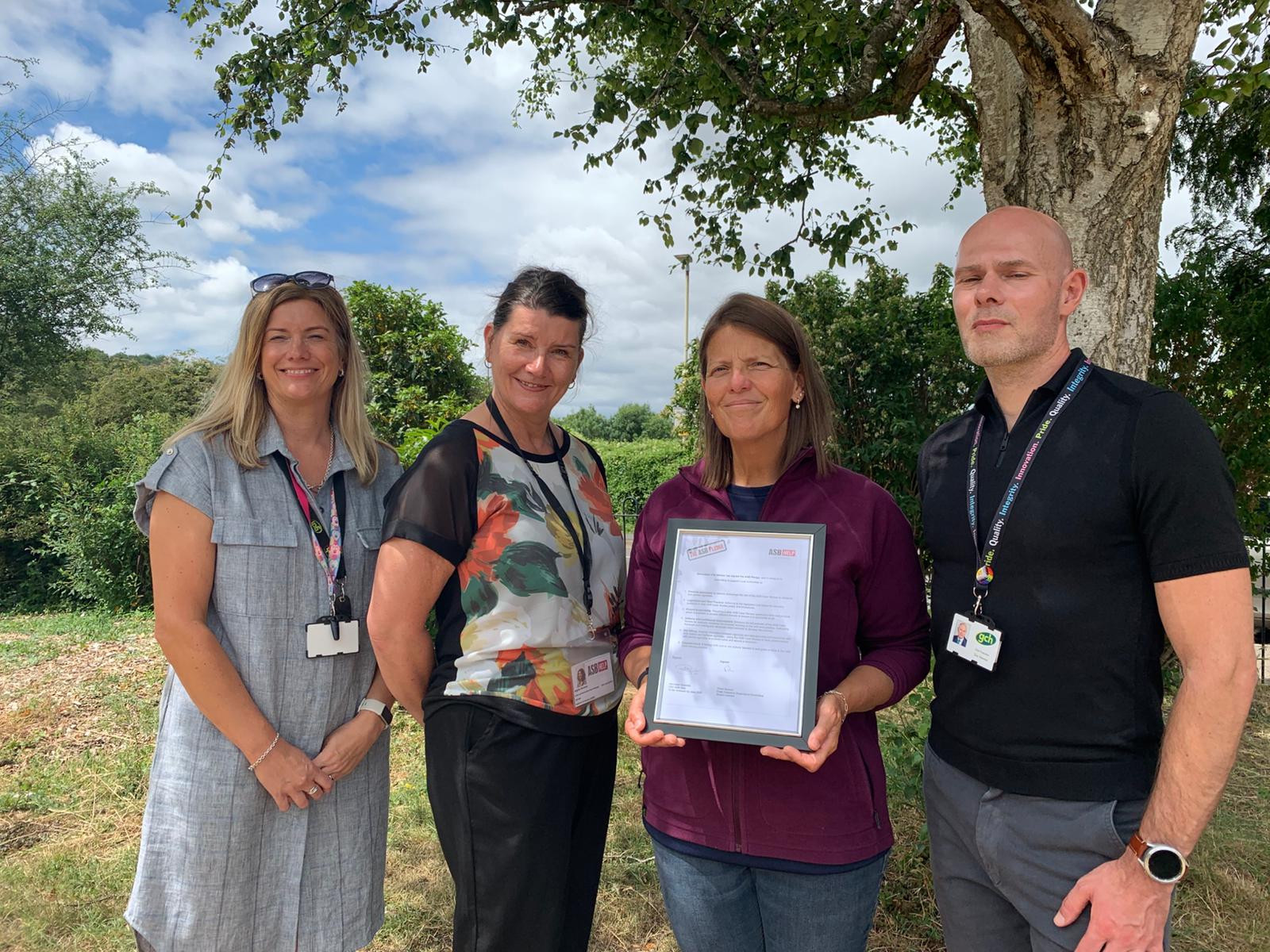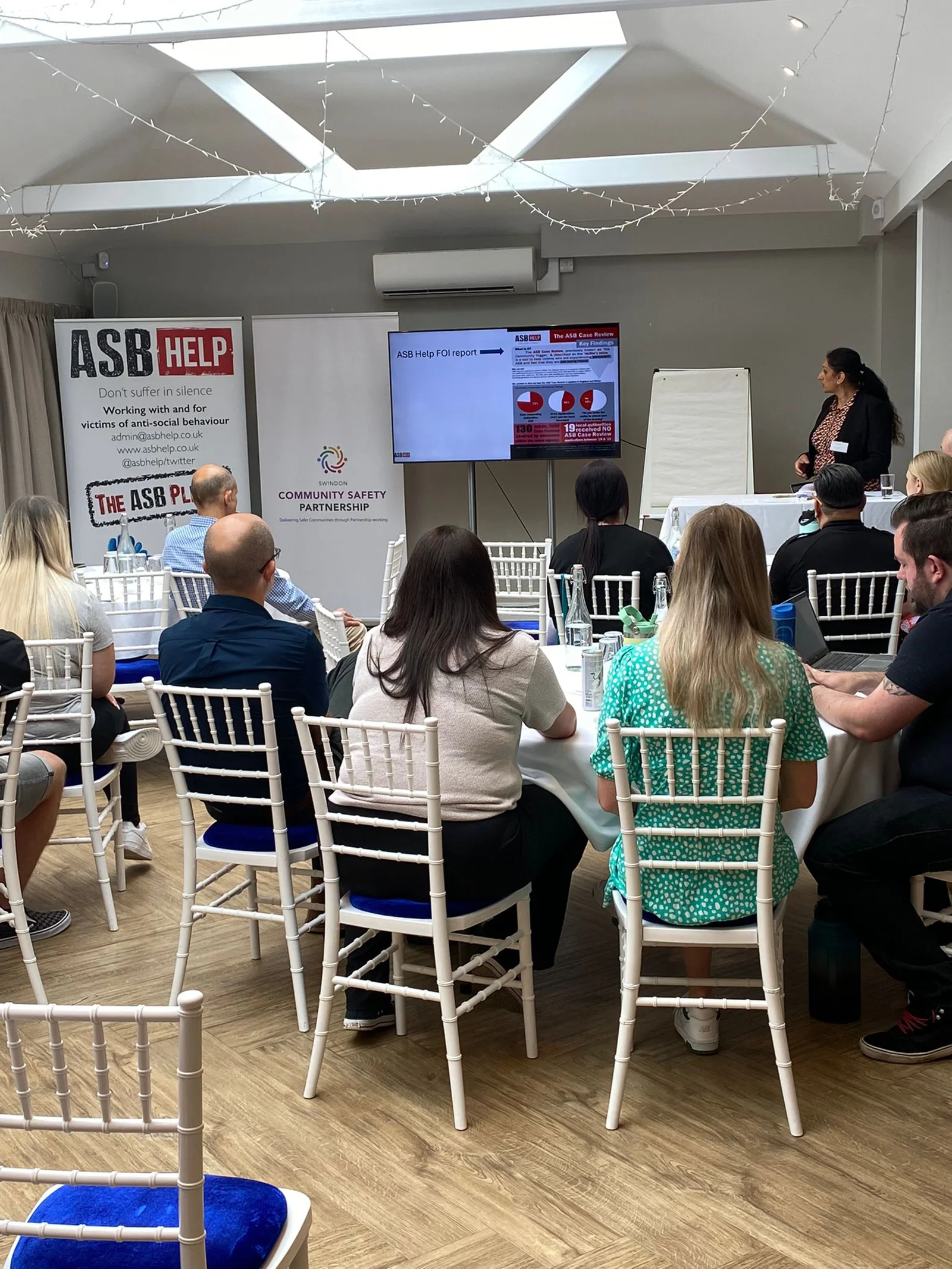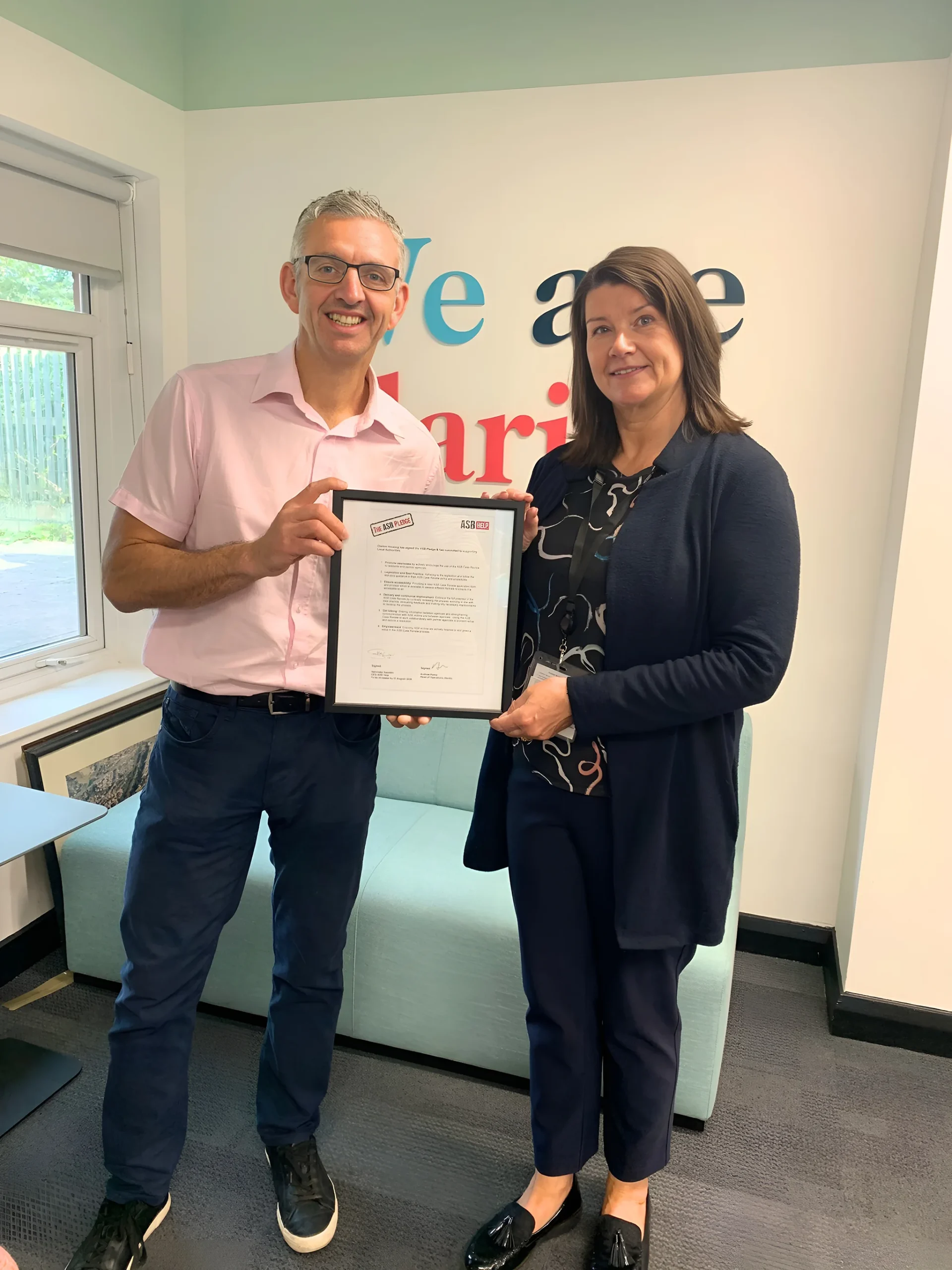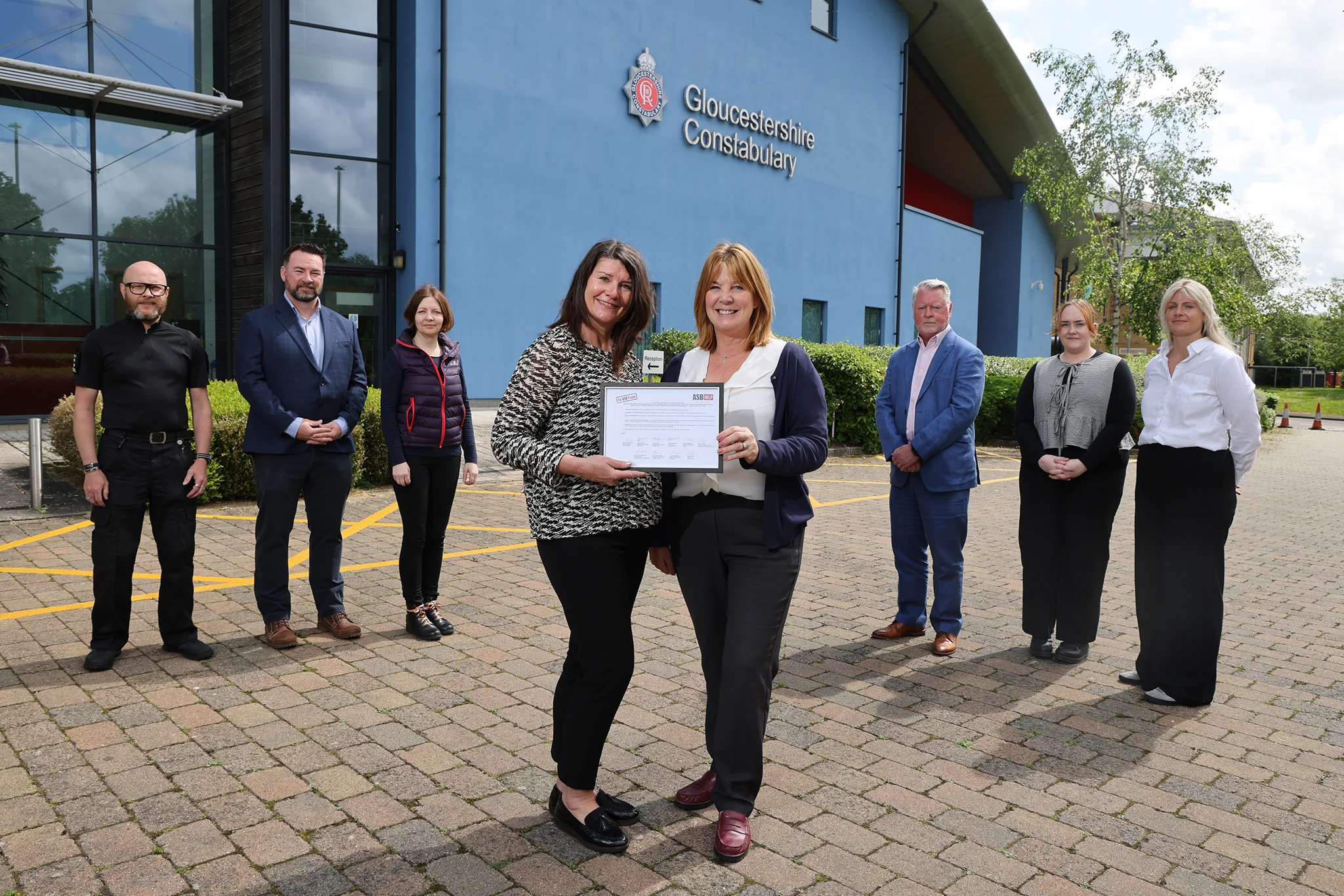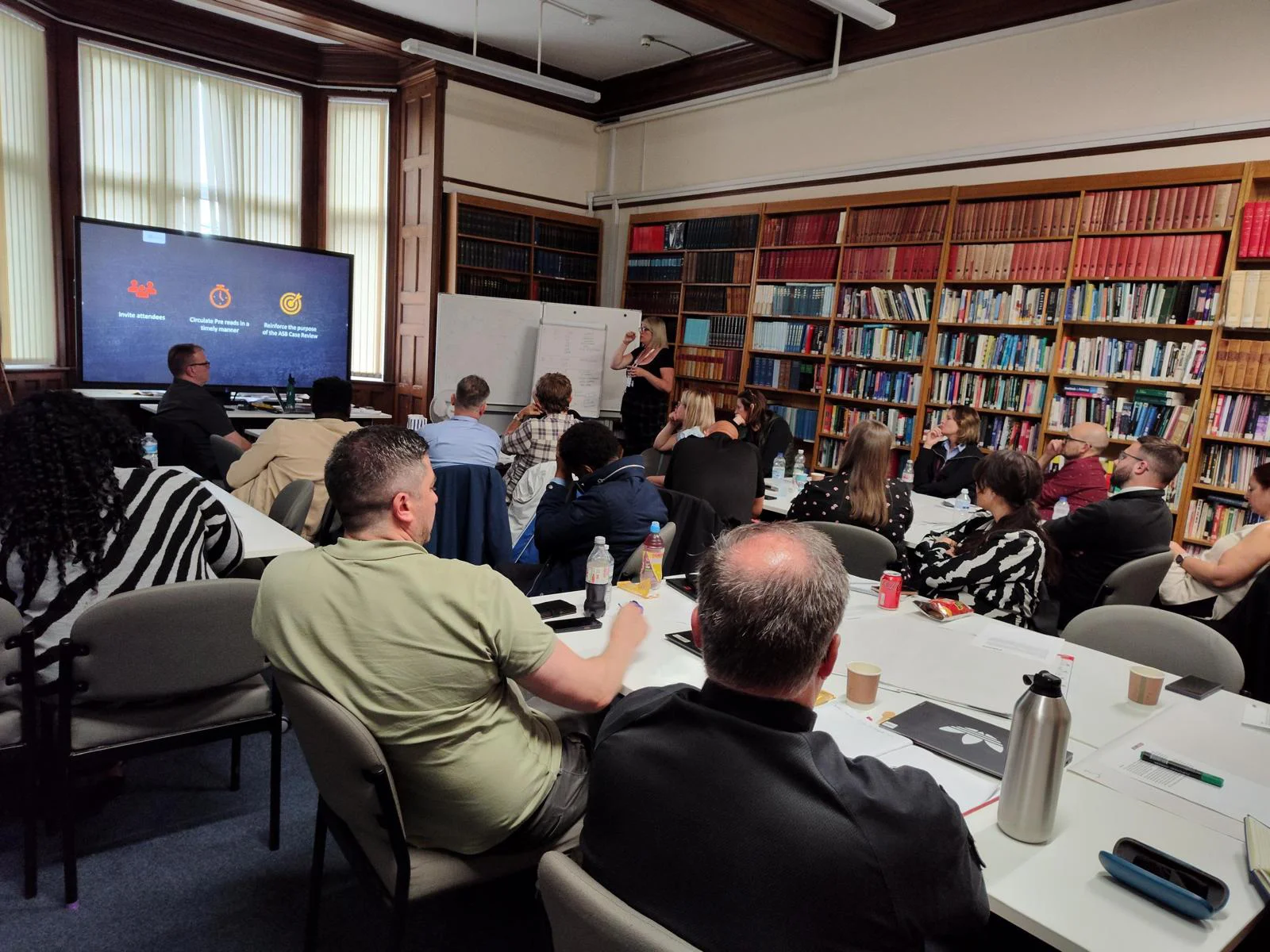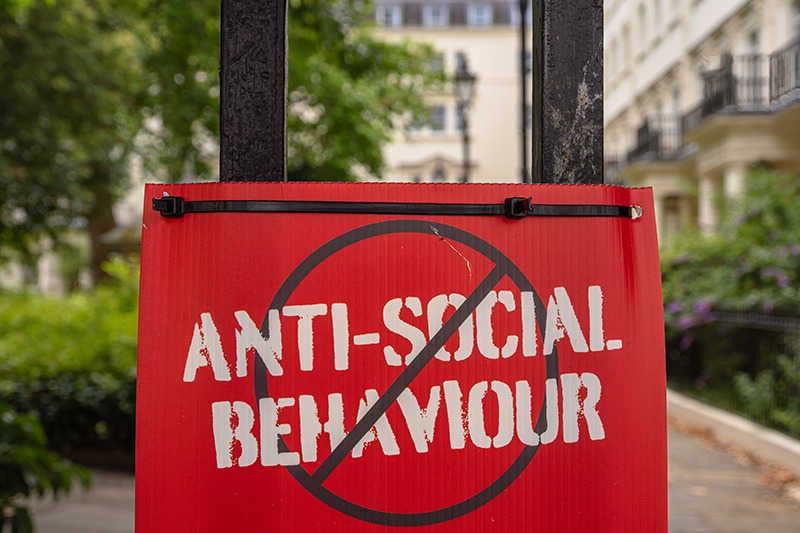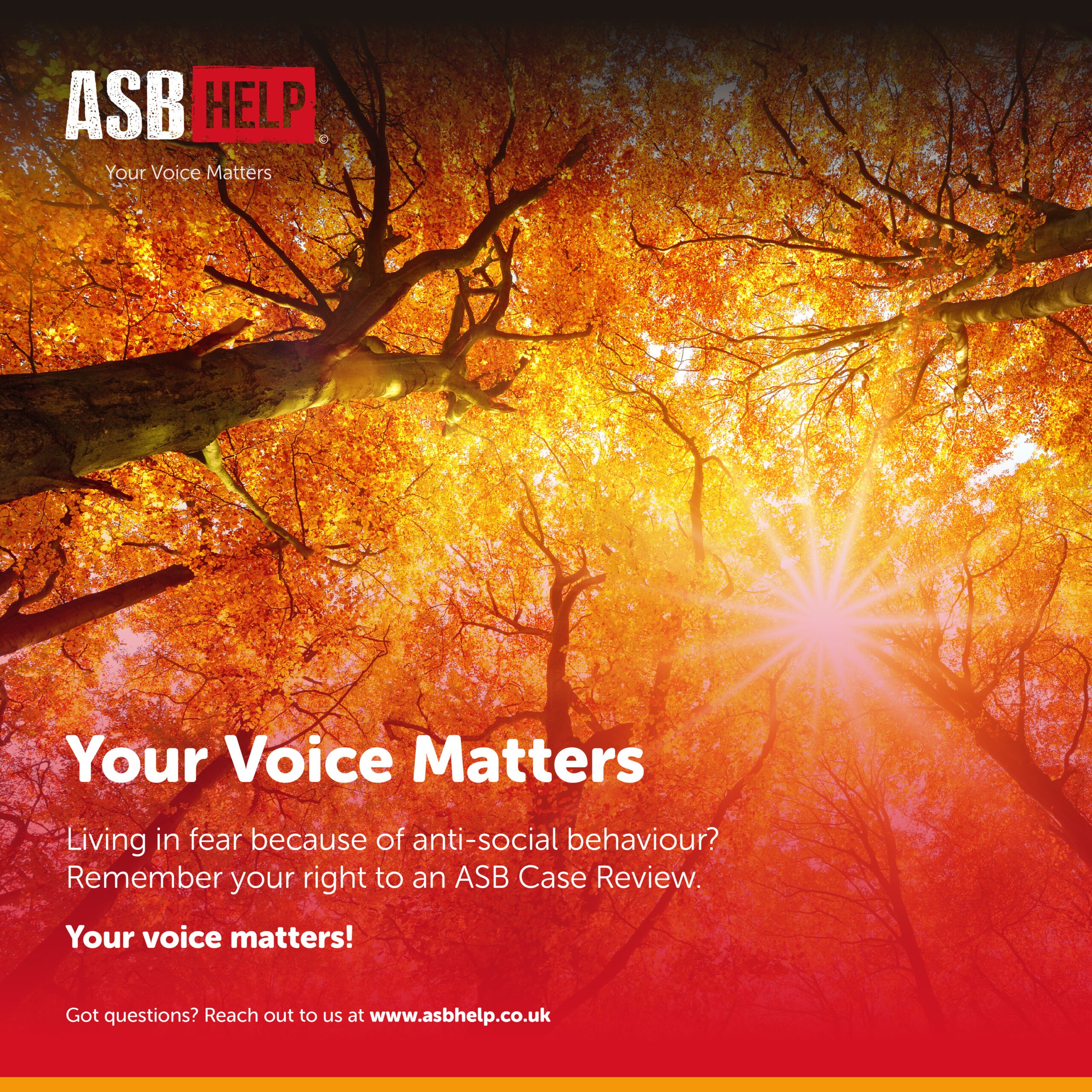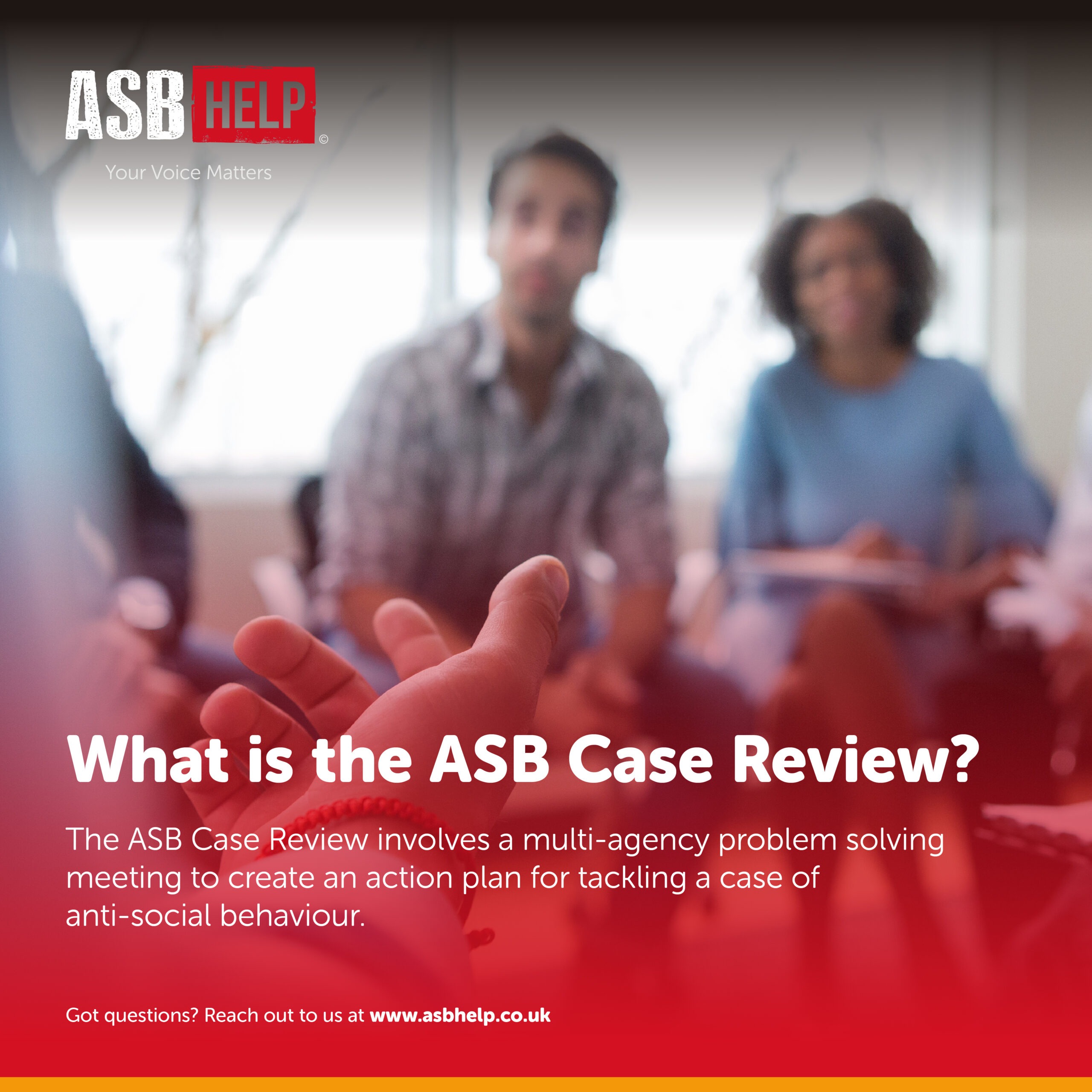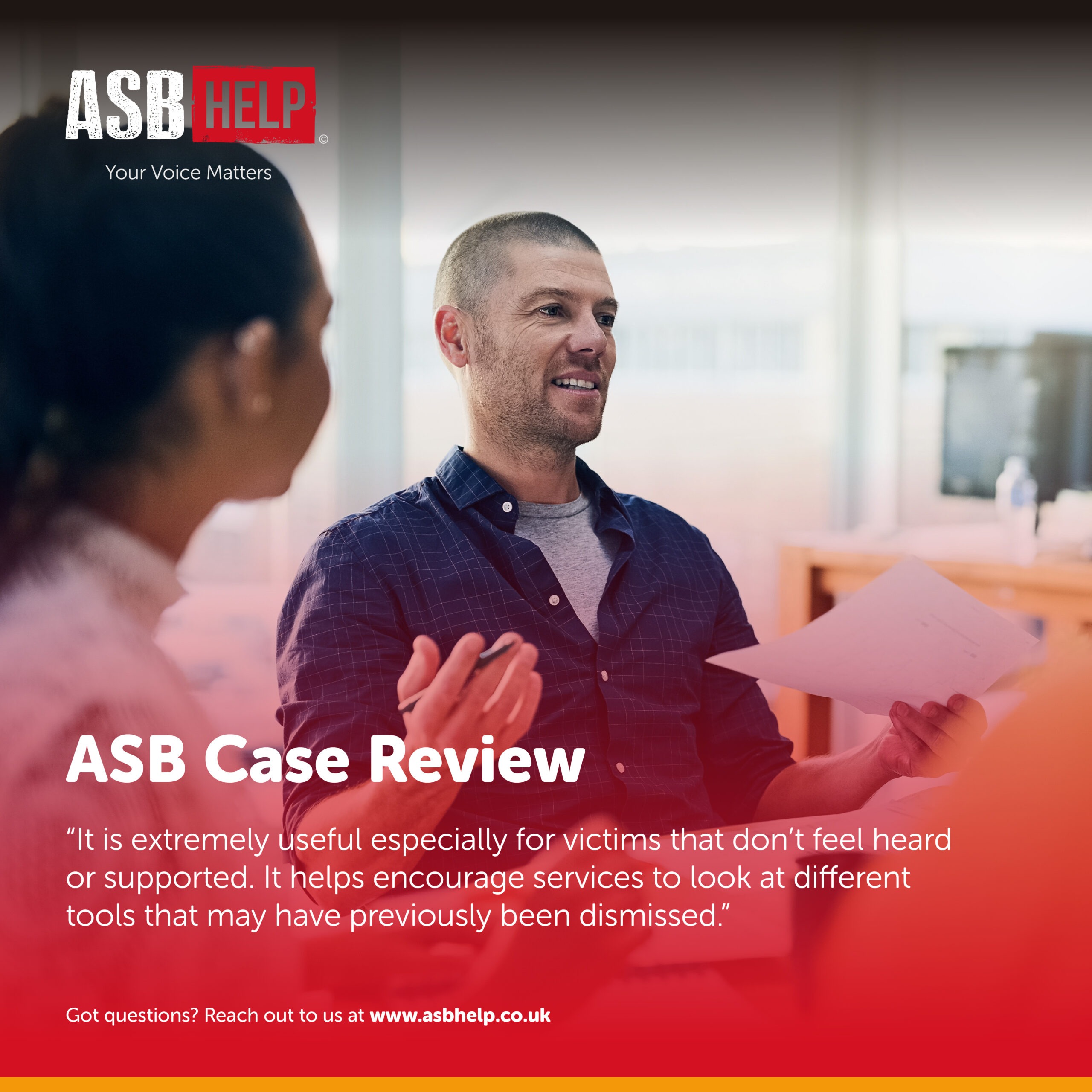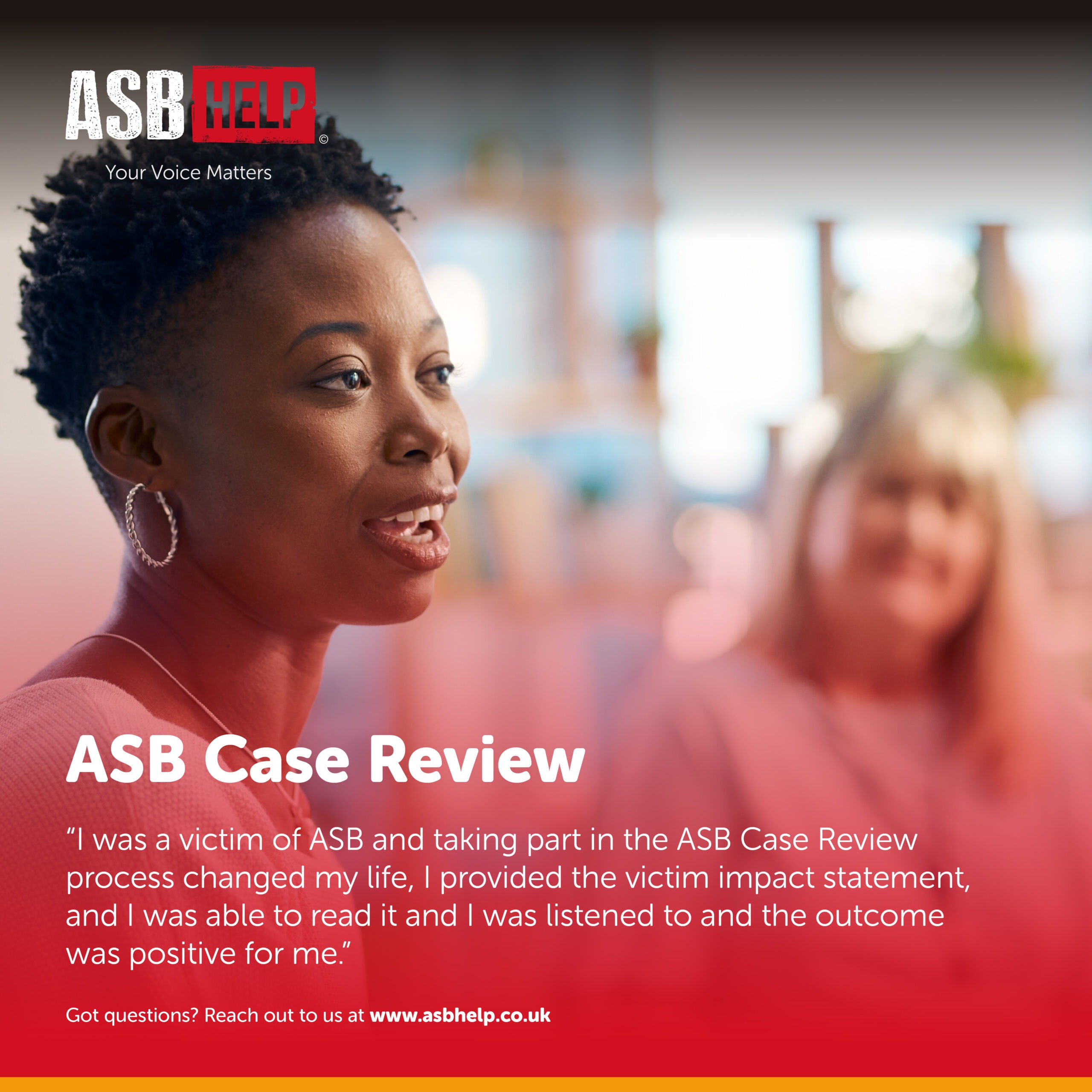Breaking down the policing white paper: Implications for ASB and victims
Introduction
The highly anticipated Policing Reforms White Paper was released by government this week. This document sets out the plethora of ways the Labour government plans to change the policing system, in what the Home Secretary has called “the most significant changes to policing in this country in nearly 200 years”.
In this blog, we will break down the ways in which these reforms may impact victims of anti-social behaviour.
More Neighbourhood Policing Officers
As announced previously, the government plans to introduce 13,000 additional officers into neighbourhood roles. They have also introduced a Neighbourhood Policing Guarantee which aims to instil confidence in the public that there will be a visible police presence in communities. These local officers will be equipped with new powers such as the upcoming Respect Orders.
Hopefully, the increase in officers and visible presence will make individuals feel safer in their communities. We strongly believe neighbourhood policing is the right approach to tackling ASB and other crimes. This will help ensure victims are aware of their rights and what to expect when they report ASB. We believe neighbourhood policing brings together knowledge and accountability to work towards reducing anti-social behaviour locally and ultimately, nationally.
We are interested to see how effective upcoming powers like Respect Orders will be in addressing anti-social behaviour and will monitor the impact of these introductions closely.
“…neighbourhood policing is a powerful antidote to local crime and the scourge of anti-social behaviour… fostering strong relationships between officers and the public, deterring crime and anti-social behaviour (ASB) and helping people feel safe.”
Policing Reforms White Paper 2026
Named ASB lead in each area
The government has introduced a named ASB lead in each area responsible for preventing and tackling anti-social behaviour locally, working with partners and ensuring victims are central in action planning.
From our conversations with victims, we know that reporting anti-social behaviour can often feel confusing and overwhelming. Many victims tell us they feel passed “from pillar to post”, unsure who to report to and having to repeat their experiences to multiple officers and agencies. The introduction of dedicated ASB leads has the potential to improve this experience by ensuring victims feel confident in who to report ASB to and that issues are escalated appropriately across local services.
“Every force now has a dedicated ASB Lead… responsible for ensuring that there is effective multi-agency collaboration to identify and address the primary issues of anti-social behaviour in the local area… with victims at the forefront.”
Policing Reforms White Paper 2026
Introduction of AI and new technologies
A new National Centre for AI in policing is being introduced, which the government state will reduce the time that officers spend sat behind a desk completing admin work like transcribing and redacting, and give them more time to be out on the beat tackling issues like ASB.
In addition, the government has began rolling out technologies such as Live Facial Recognition vans to local forces which will help to identify criminals wanted by police. This could potentially extend to perpetrators of serious anti-social behaviour.
“By introducing a new National Centre for AI in Policing (‘Police.AI’) and investing £115 million over the next 3 years, we will create a platform for identifying, testing and then scaling AI technology, as well as enabling Chief Constables to deploy AI responsibly and in a way which builds and maintains public consent. … Police.AI will also provide a public-facing registry of the AI being deployed by police forces and the steps they have taken to ensure the reliability of tools before being used for operations.”
Policing Reforms White Paper 2026
Restructuring and the introduction of a National Police Service (NPS)
The government plan to create an overarching central leadership for policing which has been dubbed the “British FBI” as well as significantly reduce the amount of police forces, which currently stands at 43.
This new service will merge existing bodies like the National Crime Agency (NCA), National Police Chiefs’ Council (NPCC), College of Policing and Counter Terrorism Policing (CTP). The NPS would be responsible for:
-
- Providing a single source of strategic leadership for the police service
- Setting national standards for policing in areas such as professional practice, training, technology, data and workforce planning.
- Providing local policing with support via deployment of new technologies and equipment as well as delivering the new national forensics service.
- Tackling serious and organised crime, so local police forces can focus on serving their local communities
We hope that the introduction of the NPS will reduce and/or eliminate the postcode lottery faced by victims of ASB across the country. A victim’s geographical location should not determine the level of support they receive from agencies.
However, some politicians have warned against the reduction of police forces, stating: “resources will be drawn away from villages and towns towards large cities.”
Therefore, we hope that the postcode lottery is not simply shifted, and that victims are supported sufficiently regardless of their location.
“The NPS will provide strategic leadership, set standards and provide education, equipment and technology to police forces… It will set strategy, ensure the delivery of national priorities, provide policing with a single source of policy and guidance and constitute a single national voice to improve communication with the public.”
Policing Reforms White Paper 2026
Conclusion
These reforms signal a shift towards a potentially more consistent and joined-up approach to anti-social behaviour. If implemented effectively, victims of anti-social behaviour could see a positive change in how their cases are handled locally. However, policy change alone is not enough. The true impact will be felt in how these reforms are applied on the ground. As these changes unfold, we will continue to monitor input from victims and practitioners and feed this back to policymakers to ensure the victim’s voice remains at the centre of decision making.
Government updates statutory guidance for ASB powers
Introduction
The government has updated their website to reflect changes to the statutory guidance on anti-social behaviour powers for frontline professionals.
These changes have been made following the recommendations of the Victims’ Commissioner’s 2024 report: Still living a nightmare: Understanding the experiences of victims of anti-social behaviour.
These updates were announced back in January 2025 and have now been implemented. These changes largely relate to the ASB Case Review process.
Below, we will cover the major changes in this update.
Single point of contact
The Home Office have made it clear in the updated guidance that a Single Point of Contact (SPoC) should be assigned to victims. The SPoC should keep the victim informed, which will ensure victims feel supported throughout the ASB Case Review process.
“Relevant bodies should keep the victim updated throughout the Case Review process and should ensure that the victim has a single point of contact to liaise with throughout the ASB Case Review process to keep them updated, including notifying them when and why a case is going to be closed.”
Promotion and accessibility of the ASB Case Review procedure
Given that it has been found that only 80% of victims know what the ASB Case Review is, we are grateful to see more guidance on the promotion of this tool.
The Home Office have advised that:
“Agencies must make every effort to clearly explain the ASB Case Review process to all victims who make a second report of ASB in a six month period regardless of if they meet the threshold criteria. For example, this could include signposting information to the victim in order for them to be aware of the Case Review mechanism.”
Thankfully, the Home Office have also introduced guidance around making the ASB Case Review sufficiently accessible to victims:
“It is important that the Case Review is accessible and that victims have various methods to apply for one. For example, where the victim might not have access to the internet or a smartphone, they may prefer to make an application over the phone or may need assistance with making the application.”
Independent chair
In our previous FOI, we found that only 36% of areas invited an external organisation to chair the ASB Case Review.
So, we are glad to see that the government has expanded their guidance on the implementation of independent chairs in the ASB Case Review process:
“Case review meetings should be chaired by an appropriately trained independent person who has sufficient knowledge of ASB procedures and legislation… The independent chair would also provide a fresh perspective on the case, the action already been taken and potential further action. This may for example be someone from within the Community Safety Partnership who has not had previous involvement in the case or someone from a neighbouring council.”
However, it’s important to note, from our conversations with victims, we know that some victims perceive a bias when ASB Case Reviews are chaired by individuals within the team. Regardless of whether the appointed chair has had prior involvement, some victims may perceive a bias as the chair is still a ‘colleague’ of the parties involved.
Victim inclusion and support
The ASB Case Review was designed to give victims a voice. So, we are really glad to see that there is an increased focus on victim inclusion and keeping the victim at the heart of the process.
For example, the new guidance states:
“The relevant body should allow the victim to choose their level of involvement and always invite the victim to attend a section of the case review meeting (in person or virtually) to help members of the panel understand the level of harm and impact the behaviour has had on them… The victim should also be given the opportunity to submit a written impact statement detailing the impact of the anti-social behaviour on them.”
This guidance is more thorough than previous guidance.
Also, regarding the creation of an action plan, the new guidance states:
“The relevant bodies should consult with the victim on the action plan but be clear on expectations before it is formalised so that they can understand the proposed actions and can share their own perspectives on the proposed plan’s effectiveness in addressing their concerns.”
We are pleased to see the addition of this guidance, which considers the victims voice throughout the process, not just during one section of it.
It’s also important to note that the updated guidance has referred to the support anti-social behaviour victims are entitled to under the Victim’s Code:
“In accordance with the Victims’ Code (2023), a person is entitled to support if they have suffered harm as a result of criminal conduct, regardless of whether the incident is formally recorded as a criminal offence or whether charges are pursued. This ensures that victims can access support services even if the behaviour is initially treated as ASB rather than an offence. If the incident has been reported to the police, the victim must be referred to local victim support services. Where it has not been reported, victims should still be made aware of how to access such services independently.”
Anti-social behaviour can be chronic and increasingly detrimental to a victim’s mental and physical health. So, this new guidance could provide some victims with a lifeline.
Conclusion
The updated ASB Case Review statutory guidance marks an important step forward in strengthening the victim’s voice. For too long, many victims have felt overlooked or unsupported when trying to get help with persistent anti-social behaviour. These changes show that progress is being made – thanks to the dedication of victims who have spoken out, and the continued efforts of organisations in the sector who are ensuring those voices are heard.
We know there is still more work to do, for example, we would like to see a clearer appeals process outlined in guidance. Nevertheless, this update is a positive sign that change is possible when victims are placed at the heart of the process. We will continue to champion their experiences, hold agencies to account, and push for a system that truly delivers justice for everyone affected by anti-social behaviour.
Bhim Kohli: An unnecessary tragedy
Our hearts go out to the family for their loss of Mr Kohli after experiencing a senseless, unnecessary tragedy.
Over the past few months, ASB Help has been following this case closely, as it has raised serious concerns about how anti-social behaviour (ASB) is reported, recorded, and acted upon in our communities.
The case: From reports of ASB to a fatal attack
In September 2024, 80-year-old Mr Bhim Kohli was murdered in his local community. On 8th April 2025, a 13-year-old girl and a 15-year-old boy were found guilty of manslaughter.
-
The boy received a seven-year custodial sentence
-
The girl was given a three-year youth rehabilitation order and a six-month curfew
The incident followed a series of unaddressed anti-social behaviour reports in the area. Many in the community, and nationally, believe these sentences do not reflect the severity of the crime. A report has now been submitted to the Unduly Lenient Sentence Scheme to consider lengthening the sentence.
Calls for an Investigation into Police Handling
Following the convictions, Mr Kohli’s daughter has called on the Independent Office for Police Conduct (IOPC) to re-examine the Leicestershire Police investigation, alleging that officers “sat on information” that could have prevented the tragedy.
Leicestershire Police have since stated they have identified “organisational learning” for logging anti-social behaviour reports.
Why Early Intervention in ASB Matters
This case shows the urgent need for proactive community safety measures and effective early intervention when dealing with anti-social behaviour.
The UK has seen similar tragedies before, including the case of Fiona Pilkington and Francesca Hardwick, where unrecognised or poorly addressed ASB led to devastating consequences. As highlighted in Baroness Newlove’s report, “Still Living a Nightmare”, the problem remains widespread across England and Wales.
At ASB Help, we regularly hear from victims who feel ignored by agencies they turn to for protection. Too often, reports are dismissed as “low-level” nuisance or “kids messing about” – when in reality, the harm caused can be profound, long-lasting, and, as in Mr Kohli’s case, fatal.
As the case has progressed, we have learned about the anti-social behaviour Mr Kohli experienced prior to his death:
BBC News reported:
“The BBC was previously told it was reported to police that in July last year, Mr Kohli had stones thrown at him, was spat at and had been racially abused by a group of children after he told them to get off his neighbour’s garage roof.”
The Guardian reported:
“It is understood that at least two separate incidents of alleged antisocial behaviour on Kohli’s street had been reported to police in recent weeks.
In an incident in July, police were called after a group of youths allegedly spat and shouted racist abuse at Kohli. In light of to their prior contact, Leicestershire police have made a mandatory referral to the Independent Office for Police Conduct.”
This growing problem, with seemingly escalating behaviours, has understandably shaken up the local community.
The Guardian reported:
“Some said they had noticed a steady uptick in antisocial behaviour locally, particularly over the past couple of years.
“We do have bad behaviour issues with kids,” said Vijay Chaganlal, who has run a local convenience shop for nine years. He said customers “feel intimidated when there are kids hanging around and do say it’s scary when kids come in”. Often youths wore balaclavas, he added,
He said it had an impact on his business, but he hadn’t contacted police for a number of years “because they don’t come. You don’t see them round here; we’ve just given up””
Remembering Bhim Kohli
Mr Kohli was a well-loved member of his community, passionate about his allotment and his family dog, Rocky. His family describe their loss:
“Our hearts have been completely broken.”
If you are experiencing anti-social behaviour, please report it to your local council, police and housing provider (if applicable).
Remember –
Every voice has a right to be heard.
Your voice matters. Get in touch with us for free advice on anti-social behaviour.
PLEDGE Awareness Day: New sign-ups!
Introduction
As part of ASB Awareness Week this year, we are using the Wednesday to highlight The ASB Help PLEDGE.
Why did we launch The ASB Help PLEDGE?
Anti-social behaviour (ASB) can have a debilitating impact on a victim’s health and well-being and a devastating effect on the wider community.
There are many effective legal and non-legal tools to address ASB and these are used by organisations such as local authorities, police and housing providers throughout the UK. Unfortunately, there are times when despite the victim reporting these incidents to various agencies, the ASB persists. It is in these circumstances whereby the ASB Case Review proves to be an invaluable tool.
As straightforward as this may sound, we have seen differences across England and Wales in the administration and delivery of the ASB Case Review process where ultimately it is the victim who is affected as a result.
So we launched The ASB Help PLEDGE.
What is The ASB Help PLEDGE?
In response to the inconsistences around how ASB Case Reviews are carried out, we launched The ASB Help PLEDGE, which seeks to encourage all agencies involved in the ASB Case Review process to embed best practices into their policy and procedures. This helps us in our mission to ensure that the ASB Case Review is not a postcode lottery and that any victim of persistent ASB (when the threshold is met), regardless of where they live, are truly given a voice and partners work together, and problem solve to secure a satisfactory resolution.
By signing up to our ASB Help PLEDGE, we work with partners to ensure that they demonstrate their commitment to supporting victims of ASB, and will endeavour to implement and follow best practice with the ASB Case Review.
New sign-ups!
Over the past week, we have had multiple agencies sign up to/renew The ASB Help PLEDGE, including:
Thank you for your commitment to keeping victims at the heart of your ASB Case Review process!
Why sign-up to The ASB Help PLEDGE?
Speaking about The ASB Help PLEDGE, Jo Grimshaw, Head of Anti-Social Behaviour at Surrey Police stated:
Taking the ASB Help PLEDGE questionnaire will help make sure you are doing your best to let your victims know how they can get help if they feel they are not being listened to. Importantly ASB Help are there to guide you, offer advice and once you have completed the questionnaire, have your P&P checked and validated.
That’s what we did in Surrey Police and now we are proud to be able to use the ASB PLEDGE Logo to show our residents that we understand, support and value the process of the ASB Case Review.
Interested in signing up?
Government plans to improve the ASB Case Review process
Yesterday the government has announced plans to update the ASB Case Review process in response to the Victims’ Commissioner’s latest report: ‘Still living a Nightmare: Understanding the experiences of victims of anti-social behaviour‘.
Also in line with recommendations from our latest report: ‘The ASB Case Review: The victims’ voice or a box-ticking exercise?‘, the government plans to update the statutory guidance for the ASB Case Review to make them more accessible and effective for victims of anti-social behaviour.
The key changes to be made include:
- Agencies involved in the ASB Case Review should communicate the progress of the case and (where appropriate) provide victims with an opportunity to be involved in any meetings to share their views and help inform the action plan.
- Recommend that victims should have a single point of contact within the lead ASB Case Review agency.
- Recommend that ASB Case Reviews should have independent chairs so victims feel confident that their case review will be dealt with fairly and objectively.
- Set out what the rights of victims of ASB are in relation to the ASB Case Review.
- Recommend that areas should consider additional caveats carefully, and that victim-facing guidance explains that local areas can have different thresholds for activating the ASB Case Review and why this is needed.
The government also plans to explore options for making appeal rights clearer in the statutory guidance. Also, the Home Office is exploring how data on the ASB Case Review can be captured as part of regular statistical data collection from the police. They are also exploring options for strengthening the role of Police and Crime Commissioners in the ASB Case Review e.g. through PCC’s promoting awareness of the ACB Case Review, monitoring its use or providing a route for victims to query decisions.
We know from conversations with victims of anti-social behaviour that positive outcomes from an ASB Case Review often arise from feeling heard and feeling that the review was conducted fairly. Therefore, we welcome these updates to the current statutory guidance.
In addition to these amendments, a new Victims’ Code will be published later this year which will include victims of criminal anti-social behaviour within its scope, including “entitlement to expect to be able to access support services”.
Neighbourhood officers will also receive new bespoke training included in the Neighbourhood Policing Pathway programme to improve how police tackle anti-social behaviour.
ASB Help’s Chief Executive Officer, Harvinder Saimbhi has responded saying:
“ASB Help fully endorse the recommendations made in the report and are supportive of the government’s response. The report addresses victim’s experiences and pleas for help, which we at ASB Help are inundated with on a daily basis.
The most fundamental tool victims have is the ASB case review and this report clearly highlights that victims are unaware of their rights or how to access the case review.
We need to ensure that partners tackling ASB across England and Wales are appropriately trained to use the tools and powers available within the ASB Crime and Policing Act, and to tackle ASB effectively, bringing respite to those experiencing ASB.
We therefore welcome the government’s response and look forward to continuing to work with them, and other partners, to tackle ASB and ensure better protection and support for victims.”
The Victims’ Commissioner for England and Wales, Baroness Newlove responded:
“More must be done to support victims of anti-social behaviour, and I welcome the government’s response to my report as a positive first step.
My report highlighted the transformative impact of a single point of contact (SPOC) to ensure victims feel heard and supported, so I’m pleased this recommendation is being taken forward.
It is so important victims of ASB are given a voice and are listened to. Planned reforms to strengthen statutory guidance for the ASB Case Review process are a welcome measure to build trust and empower victims. For these reforms to have the greatest impact, changes to the law will be the crucial next step.
I look forward to working with the government to bolster protections and the law. The upcoming consultation on the Victims’ Code offers a key opportunity for progress. It is essential we get this right, as there is still much more to be done for lasting change.”
Our CEO, Harvi, appeared on Sky News this morning to discuss this announcement:
If you are being impacted by anti-social behaviour and don’t know where to turn, please get in touch
2024 wrap up and what's to come
What happened in 2024?
2024 was a big year for us here at ASB Help. Here is a run-down of what we got up to:
- We expanded our team to include our Admin and Communication Officer, Martine, and our Practitioner and Policy Manager, Mark!
- We launched our new and updated website.
- We provided bespoke training to hundreds of practitioners across England and Wales.
- We launched our ‘Your Voice, Your Right‘ campaign back in October.
- We had a busy but productive ASB Awareness Week.
- We have had multiple sign-ups to the ASB Help PLEDGE.
So what’s next for 2025?
In 2025, we want to help as many victims of anti-social behaviour as possible. Here are some of our goals for 2025:
- To continue working alongside organisations towards better outcomes for victims of ASB.
- Ensure tackling ASB remains a national priority.
- Help to improve outcomes for more victims through continued work with frontline practitioners.
- Lobby for ASB victims’ right to support.
- Campaign to ensure that ASB victims are recognised in new legislation brought in by government.
- Sign up even more practitioners to The ASB Help PLEDGE.
- Continue raising awareness of the ASB Case Review.
We would like to say a big thank you to everyone who has supported us throughout 2024 and we look forward to what 2025 might bring!
What the government's 'Plan for Change' means for anti-social behaviour
Over the past few weeks it has been very encouraging to see an ongoing focus on anti-social behaviour. With the recent announcements from the Home Office regarding neighbourhood policing guarantee, and the trial and introduction of Respect Orders, we are pleased that proactive steps are being taken to address prolific and deeply entrenched ASB in our communities.
Today’s speech from the Prime Minister, in his own words, “doubles down” on those pledges made in Labour’s manifesto, and their ‘Plan for Change‘. ASB is a scourge on a peaceful, respectful way of life, and all too often is brushed off as ‘low level’, or trivial. However, it devastates lives, and leaves a lasting impact on communities.
Victims repeatedly tell us they do not feel safe in their own homes, and they do not know who to turn to or even if they will be listened to. No one should EVER feel that way.
Management of ASB requires a multi-agency approach, with police, local authorities and housing providers working together with other experts to tackle the problem.
The pledge previously made and reinforced today as one of the government’s key milestones, of 13,000 Police Officers being channelled into neighbourhood policing, is a welcomed one. Victims deserve to know who they can talk to, they deserve continuity and an empathetic response and we hope that these new steps will reaffirm that confidence in our community safety teams.
ASB Help’s Chief Executive Officer, Harvinder Saimbhi was at Pinewood Studios this morning for the Prime Minister’s speech and says:
“Hearing the Prime Minister speak first-hand about the six key milestones this morning has given us further hope for the recognition of anti-social behaviour as a national priority. The neighbourhood policing guarantee, specifically the increase in neighbourhood officers, and named officers as a point of contact within communities will give great reassurance to victims. Victims who too often have to repeat reports to different officers and agencies and chase progress on their cases. Having dedicated, appropriately trained Police Officers who will be able to respond quickly, will support victims and community needs.
Over the years we have campaigned for specialist ASB officers and I am glad to see we are heading in the right direction. However, we must ensure these officers are not redeployed to other areas of policing as we have seen in the past.”
If you are being impacted by anti-social behaviour and don’t know where to turn, please get in touch
Respect Orders to tackle anti-social behaviour
ASB Help welcomes today’s announcement from the Home Office on the trial and introduction of Respect Orders. Anti-social behaviour continues to have a devastating impact on victims and communities across England and Wales. We are keen to see how this new power will be implemented and the effect it will have on the issues faced by victims across the country.
Following the Home Secretary’s announcement of major policing reforms, the Home Office has announced their plans to bring in new Respect Orders which will “subject repeat offenders of anti-social behaviour to tough restrictions on their behaviour”.
Here are the take aways from the Home Office’s announcement:
- Respect Orders will give police the power to ban persistent offenders from town centres, or from drinking in public spots.
- Perpetrators can be required to address the root cause of their behaviour e.g. via drug/alcohol treatment; similar to positive requirements seen under injunctions currently.
- Unlike injunctions, breaching a Respect Order will be a criminal offence – police will have the ability to immediately arrest anybody breaching their Respect Order.
- As well as prison sentences of up to two years, criminal courts will also be able to issue unlimited fines and community orders, such as unpaid work, and curfews as punishment for breaching a Respect Order.
- Police will have stronger powers to seize vehicles involved in ASB, no longer requiring to issue a warning before seizing the vehicle(s), including off-road bikes and dangerous e-scooters on pavements.
In response to this announcement, our CEO, Harvi, states:
“As the national charity that supports victims of anti-social behaviour, we regularly hear from victims who share with us the impact and harm they experience from repeated incidents of ASB. The lack of response from agencies leaves victims with little hope that the offenders will be dealt with robustly. Therefore, we are encouraged by the approach of addressing root causes of anti-social behaviour which will in turn work towards reducing reoffending rates, bringing respite to victims and communities.
It is important that the trial of Respect Orders is implemented effectively through comprehensive training which will give confidence to both the police and councils on how to use the new power.
It is vital that appropriate resources are provided to the key agencies who will provide the services, for offenders to undertake positive rehabilitation, such as attending drug or alcohol treatment services, or an anger management course to address the underlying causes of their behaviour.
We must also ensure there is robust monitoring and review of the Respect Orders during the trial period as we must get this right.
There must be a balanced approach to both dealing with persistent ASB in town centres and with those victims that face persistent ASB within their homes. The Respect Orders will complement the current tools and powers, and we look forward to their full implementation. We hope this will promote national consistency so that every victim, regardless of where they live in England and Wales, can feel confident that their ASB will be taken seriously and dealt with.”
Our Deputy CEO, Charlie, appeared on Sky News this morning to discuss these new powers:
ASB Awareness Week 2024
We want to highlight ASB Awareness Week this year by providing a wealth of information for practitioners and victims, in hopes of improving outcomes for victims of anti-social behaviour.
A few weeks ago, we launched our Your Voice Your Right campaign to raise awareness of the ASB Case Review. We want to highlight and continue this conversation to ensure it is not forgotten.
The daily themes for ASB Awareness Week 2024 are as follows:
Monday 18th – Partnership Day
Tuesday 19th – Victim’s Day
Wednesday 20th – “Let’s Talk ASB” Day
Thursday 21st – Community Heroes Day
Friday 22nd – Young People’s Day
Saturday 23rd – ASB and Health Day
Sunday 24th – Community Action Day
Each day we will be releasing videos, blogs, and/or case studies to raise awareness of anti-social behaviour and highlight good practice.
Please feel free to use any of the resources below to raise awareness of the ASB Case Review and best practices when conducting them.
Your Voice Your Right campaign launch
We are so pleased to announce the launch of our Your Voice, Your Right campaign which will run from 28th October to 10th November.
On the back of our Freedom of Information (FOI) Report: The ASB Case Review – the victims’ voice or a box-ticking exercise?, the Victim Commissioners’ Report: Still Living a Nightmare, and HMICFRS’s PEEL report we have launched this campaign to raise awareness of the ASB Case Review, and encourage practitioners to use best practices when conducting ASB Case Reviews.
As part of our campaign research, we conducted a mixture of surveys and interviews with almost 50 victims and practitioners. We have also taken into consideration the feedback we get from enquirers to our charity.
The resulting qualitative and quantitative data suggests that:
- Victims feel the ASB Case Review process is not clear or transparent when they lack communication from practitioners.
- Victims feel that the ASB Case Review is not fair when an independent chair is not used.
- Victims with positive experiences of the ASB Case Review note best practices as key factors for this outcome e.g. they were invited to give a victim impact statement.
- Practitioners generally agree that the ASB Case Review is a vital tool but is most effective when agencies use best practices and partnership working.
Given this data, we believe it is vital to collectively raise awareness of the ASB Case Review and celebrate the impact it can have on victims’ lives when used in best practice.
“As the charity that supports victims of ASB on a daily basis, we hear about the devastating impact that ASB is having on them and their families. Many feel there is little support for them and are often living in fear, not knowing where to turn or how to ask for help. That’s why this campaign, ‘Your Voice, Your Right’, is so important. It is imperative that we raise awareness of the ASB Case Review, encourage practitioners to embrace it and empower victims to utilise it.”
– Harvi Saimbhi, CEO ASB Help
“I know from my day-to-day national portfolio of trying to lead and coordinate and improve policing’s response to ASB up and down the country – The ASB case review is going to be a key part of how we do even better, more often.”
– Deputy Chief Constable Essex, Andrew Prophet
“All too often, the Case Review feels like a mere box-ticking exercise to victims, allowing authorities to ‘mark their own homework’. This was made painfully clear by hundreds of anti-social behaviour victims in my recent report.
For the Case Review to be a force for good, victims, not just authorities, need and deserve a seat at the table — an opportunity to describe the impact of their ordeal and for authorities to really listen.
The Case Review needs meaningful victim engagement and strengthened independence. It should bring victims — no matter where they live — some resolve, whilst improving agencies’ understanding of ASB and support to victims. Only then will the Case Review deliver on its promise to victims and make our communities safer.”
– Victims Commissioner, Dr Baroness Helen Newlove
So, as part of our campaign, we will be:
- Sharing first-hand accounts from victims of anti-social behaviour.
- Sharing first-hand accounts and advice from practitioners in the ASB field, including DCC Andrew Prophet and Dr Baroness Helen Newlove.
- Sharing video input from victims and practitioners.
- Hosting webinars for victims and practitioners.
- Releasing blogs detailing victim’s rights and best practices regarding the ASB Case Review.
- Providing free resources for organisations to raise awareness of the ASB Case Review.
Join us in raising awareness of the ASB Case Review! Download our free social media graphics below. Tag us and use the hashtag: #YourVoiceYourRight
A special thank you goes out to the victims and practitioners that have collaborated with us on this campaign. We will continue to champion the victim’s voice and support those experiencing ASB the best we can.
